Keywords:
education, autonomy, dogmatism, subjectivity.Abstract
This article is a reflection on Kant's work and its implications for education. At first there is a distinction between subjectivism and subjectivity to explain what the dogmatism of reality. The conception of the educational as an exercise from which should enable the understanding of reality and the adequacy of maximum objective laws allows, in youth, training in autonomy. This leads to the idea that the student must become the architects of their training process. Educating is, in this sense, constantly and relentlessly assume our human condition as a "to be", but mostly as a "must". When we fulfill requirements, we mark our behaviors and actions that have nothing to do with the ends we seek. So the adoption of attitudes and doctrines with assimilation not make unrelated indoctrination and education as a process of manipulation instruction and dehumanize humans.Downloads
Download data is not yet available.
References
Ley General de Educación. Bogotá: Editorial UNIÓN LTDA. 1999.
MEN. Educación ética y valores humanos. Lineamientos curriculares. Bogotá: Cooperativa editorial Magisterio. 1998.
FREIRE, P., (2010). Cartas a quien pretende enseñar. Sao Paulo: Ed. Siglo XXI, 2ª ed.
HABERMAS, J. (2002). Teoría de la acción comunicativa. México: Ed. Taurus.
HEIDEGGER, M. (2010). ¿Qué significa pensar? Madrid: Ed. TROTTA, 3ª ed.
KANT, I. (2000). Crítica de la Razón Pura. (M. García y M. Fernández, Trad.). México: Ed. Porrúa.
KANT, I. (2005). Fundamentación de la metafísica de las costumbres. (H. J. Paton, Trad.). Madrid: Ed. Tecnos.
KANT, I. (2004). Crítica de la Razón Práctica. (A. Zozaya, Trad.). Madrid: Ed. Mestas, 2ª ed.
KANT, I. (2008). Respuesta a la pregunta: (J.C. Poveda, Trad.). ¿Qué es la Ilustración? Bogotá.
KANT, I. (2003). Pedagogía. (L. Luzuriaga y José L. Pascual, Trad.). Madrid: Ed. Akal, 3ª ed.
NIETZSCHE, F., (1994). Aurora. Madrid: M.E. EDITORES, S. L.
NIETZSCHE, F., (2003). Así habló Zaratustra. México, D.F.: Grupo editorial Tomo, S.A. de C.V.
MEN. Educación ética y valores humanos. Lineamientos curriculares. Bogotá: Cooperativa editorial Magisterio. 1998.
FREIRE, P., (2010). Cartas a quien pretende enseñar. Sao Paulo: Ed. Siglo XXI, 2ª ed.
HABERMAS, J. (2002). Teoría de la acción comunicativa. México: Ed. Taurus.
HEIDEGGER, M. (2010). ¿Qué significa pensar? Madrid: Ed. TROTTA, 3ª ed.
KANT, I. (2000). Crítica de la Razón Pura. (M. García y M. Fernández, Trad.). México: Ed. Porrúa.
KANT, I. (2005). Fundamentación de la metafísica de las costumbres. (H. J. Paton, Trad.). Madrid: Ed. Tecnos.
KANT, I. (2004). Crítica de la Razón Práctica. (A. Zozaya, Trad.). Madrid: Ed. Mestas, 2ª ed.
KANT, I. (2008). Respuesta a la pregunta: (J.C. Poveda, Trad.). ¿Qué es la Ilustración? Bogotá.
KANT, I. (2003). Pedagogía. (L. Luzuriaga y José L. Pascual, Trad.). Madrid: Ed. Akal, 3ª ed.
NIETZSCHE, F., (1994). Aurora. Madrid: M.E. EDITORES, S. L.
NIETZSCHE, F., (2003). Así habló Zaratustra. México, D.F.: Grupo editorial Tomo, S.A. de C.V.
Downloads
Published
2018-08-01
How to Cite
Hernández Buitrago, W. F. (2018). Kant and education. Reflections regarding the act of teaching. Cultura científica, (11), 85–90. Retrieved from https://jdc-ojs.vobomkt.com/index.php/Cult_cient/article/view/176
Issue
Section
Reflection article





